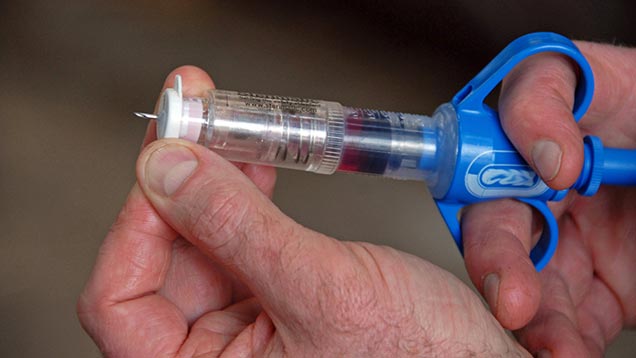France sees first case of bluetongue in EU since 2011
 ©Nick Spurling/FLPA / imageBROKER/REX
©Nick Spurling/FLPA / imageBROKER/REX UK livestock farmers have been told to be on the alert after the first case of bluetongue disease seen in the EU since 2011 was confirmed on a farm in central France.
Suspicions were raised after a sheep on the holding in the Allier region showed symptoms of the disease on 21 August.
Subsequent tests have found five out of 175 sheep and 27 out of 147 cattle were positive for the disease.
See also: Bluetongue symptoms
According to the French Ministry of Agriculture, a 150km zone has since been put in place, introducing movement restrictions, along with active surveillance and a ban on gatherings.
In addition, the French government and livestock sectors have in place a vaccination strategy and 1.3m doses of vaccine will be made available as soon as possible.
Preliminary investigations suggest an additional seven holdings in the 2km zone around the index case also have animals which have tested positive.
According to a Defra briefing document, investigations are under way in the region and neighbouring areas to determine the source of infection.
The EU’s trade notification system (Traces), shows there have been no direct cattle or sheep/goat imports into the UK from this region or the neighbouring Puy de Dome region since 1 August.
“However, as many consignments come through assembly centres, it is not always obvious what the place of origin would be and therefore livestock keepers in the UK should be vigilant to possible clinical signs,” said Defra.
“Until the origin of disease is understood and the extent of spread, it is difficult to assess whether this outbreak signifies an increase in our risk level from low to medium. Meteorological modelling of recent weather conditions to assess whether the UK has been at risk of incursion in the past two months will be carried out.”
